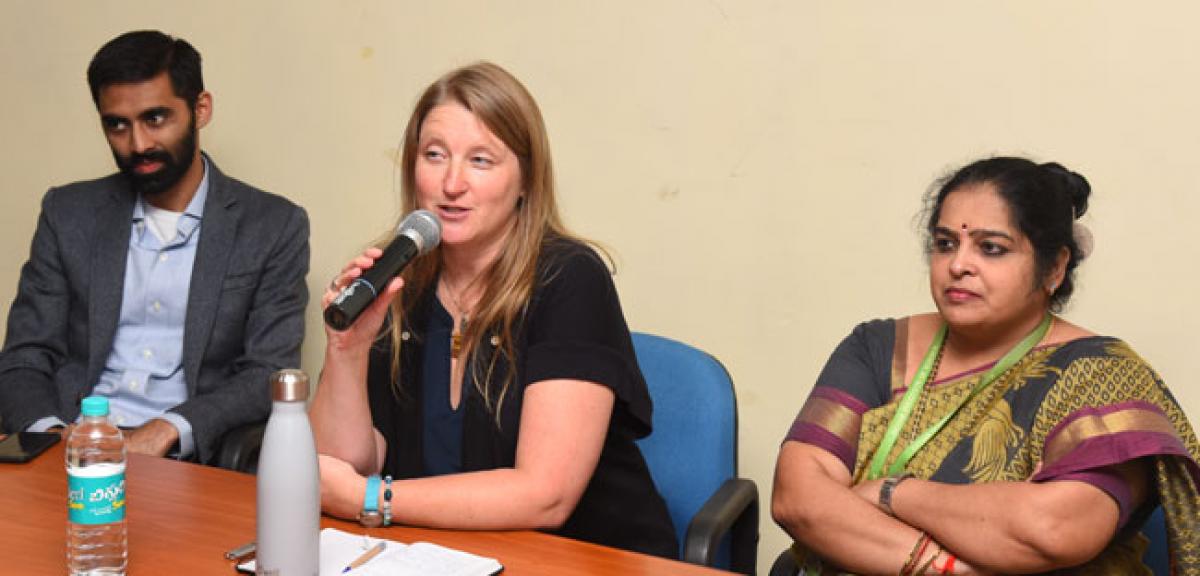Save marine life from plastic: Prof

Major per cent of plastic that ends up in the ocean is getting there through landbased sources and once it is in the ocean, it can travel all over the world and becomes global issue, observed by Dr Jenna Jambeck, Associate Professor of Environmental Engineering and Director of Center for Circular Materials Management, University of Georgia here on Monday at GITAM Deemed to be University
Visakhapatnam: Major per cent of plastic that ends up in the ocean is getting there through land-based sources and once it is in the ocean, it can travel all over the world and becomes global issue, observed by Dr Jenna Jambeck, Associate Professor of Environmental Engineering and Director of Center for Circular Materials Management, University of Georgia here on Monday at GITAM Deemed to be University.
She delivered a distinguished lecture at GITAM Institute of Science in Environmental Science department on “Plastic Waste Input into the Ocean: Science and Solutions.”
She briefed that humans have created 8.3 billion metric tonnes of plastics since large-scale production of the synthetic materials began in the early 1950s, and most of it now resides in landfills or the natural environment.
Plastics do not biodegrade in the ocean, but because of weathering and exposure to sunlight, larger plastic items just fragment into increasingly smaller particles. Those tiny pieces, known as microplastic, can potentially stick around for hundreds or perhaps even thousands of years, she added.
She said that marine plastic has implications for sea life and potentially for human health. It can entangle seals and whales, fill the stomachs of albatrosses, turtles, and affect the tiniest animals in our food web. She mentioned that keeping plastic out of the marine system is crucial and has large economic and health benefits. The solution to most plastic pollution in the ocean starts on land, she added.
She informed that the Marine Debris Tracker is a global app that uses citizen science to collect data on items collected on beaches around the world and records a GPS coordinate for every debris item and allows for near real-time data gathering.
Various national and international bodies are working on outreach, diplomacy and policy initiatives towards managing and mitigating marine waste, including the World Bank, G20 and in Africa, the Abidjan and Nairobi Conventions, she added.
The programme was presided by GITAM Institute of Science Vice-Principal Prof K Rajagopal. The environmental science department head Prof Y Maruthi briefed about the research work done by Dr Jenna Jambeck at University of Georgia.








